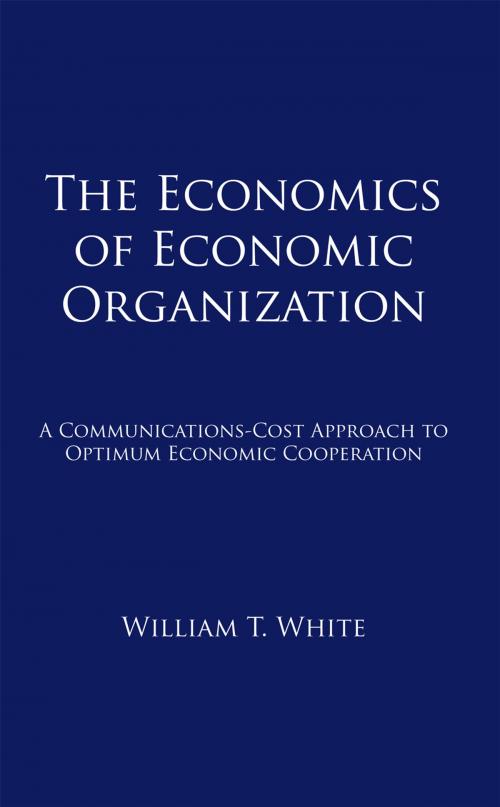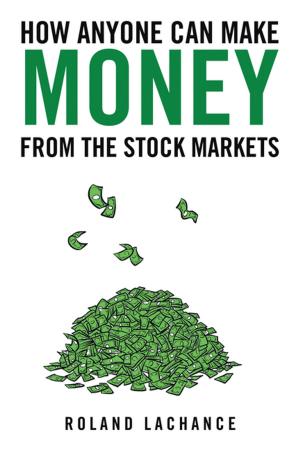The Economics of Economic Organization
A Communications-Cost Approach to Optimum Economic Cooperation
Business & Finance| Author: | William T. White | ISBN: | 9781449092221 |
| Publisher: | AuthorHouse | Publication: | February 22, 2010 |
| Imprint: | AuthorHouse | Language: | English |
| Author: | William T. White |
| ISBN: | 9781449092221 |
| Publisher: | AuthorHouse |
| Publication: | February 22, 2010 |
| Imprint: | AuthorHouse |
| Language: | English |
This book presents an extension of economic theory to economic organization. It argues that "economic man" seeks to better his lot through a combination of market maximization and cooperation with others, in contrast with the prominent view that self-seeking in markets must be compromised or society will become "a war of all against all". In Chapter 1, the book presents the basics of a unified economic theory that erases the numerous conflicts between microeconomics, the study of individuals acting in markets and macroeconomics, the study of nation-state economics as a whole. Chapter 2 looks at related other schools of thought in economics, including most notably Law and Economics and Catholic economics. While some others schools of economic thought do treat economic organization, none recognizes that economic organizations exist fundamentally to reduce the costs of the communication that makes possible inter-individual economic cooperation. Chapter 3 tells the story of selected utopian communities, which from the economic point of view were attempts to keep economies small enough so that communications in economic matters were essentially costless. Chapter 4 discusses examples of models in microeconomics that require revision to incorporate a more adequate treatment of communications costs and of the economic organizations created to contain them. Chapters 5 and 6 do the same for macroeconomics and international economics, respectively. Chapter 7 discusses the basic failures of the securities markets, which have degenerated so far from their rational function that secrecy and lying, rather than truth-based economic cooperation is the principal source of profits for securities fims.
This book presents an extension of economic theory to economic organization. It argues that "economic man" seeks to better his lot through a combination of market maximization and cooperation with others, in contrast with the prominent view that self-seeking in markets must be compromised or society will become "a war of all against all". In Chapter 1, the book presents the basics of a unified economic theory that erases the numerous conflicts between microeconomics, the study of individuals acting in markets and macroeconomics, the study of nation-state economics as a whole. Chapter 2 looks at related other schools of thought in economics, including most notably Law and Economics and Catholic economics. While some others schools of economic thought do treat economic organization, none recognizes that economic organizations exist fundamentally to reduce the costs of the communication that makes possible inter-individual economic cooperation. Chapter 3 tells the story of selected utopian communities, which from the economic point of view were attempts to keep economies small enough so that communications in economic matters were essentially costless. Chapter 4 discusses examples of models in microeconomics that require revision to incorporate a more adequate treatment of communications costs and of the economic organizations created to contain them. Chapters 5 and 6 do the same for macroeconomics and international economics, respectively. Chapter 7 discusses the basic failures of the securities markets, which have degenerated so far from their rational function that secrecy and lying, rather than truth-based economic cooperation is the principal source of profits for securities fims.















